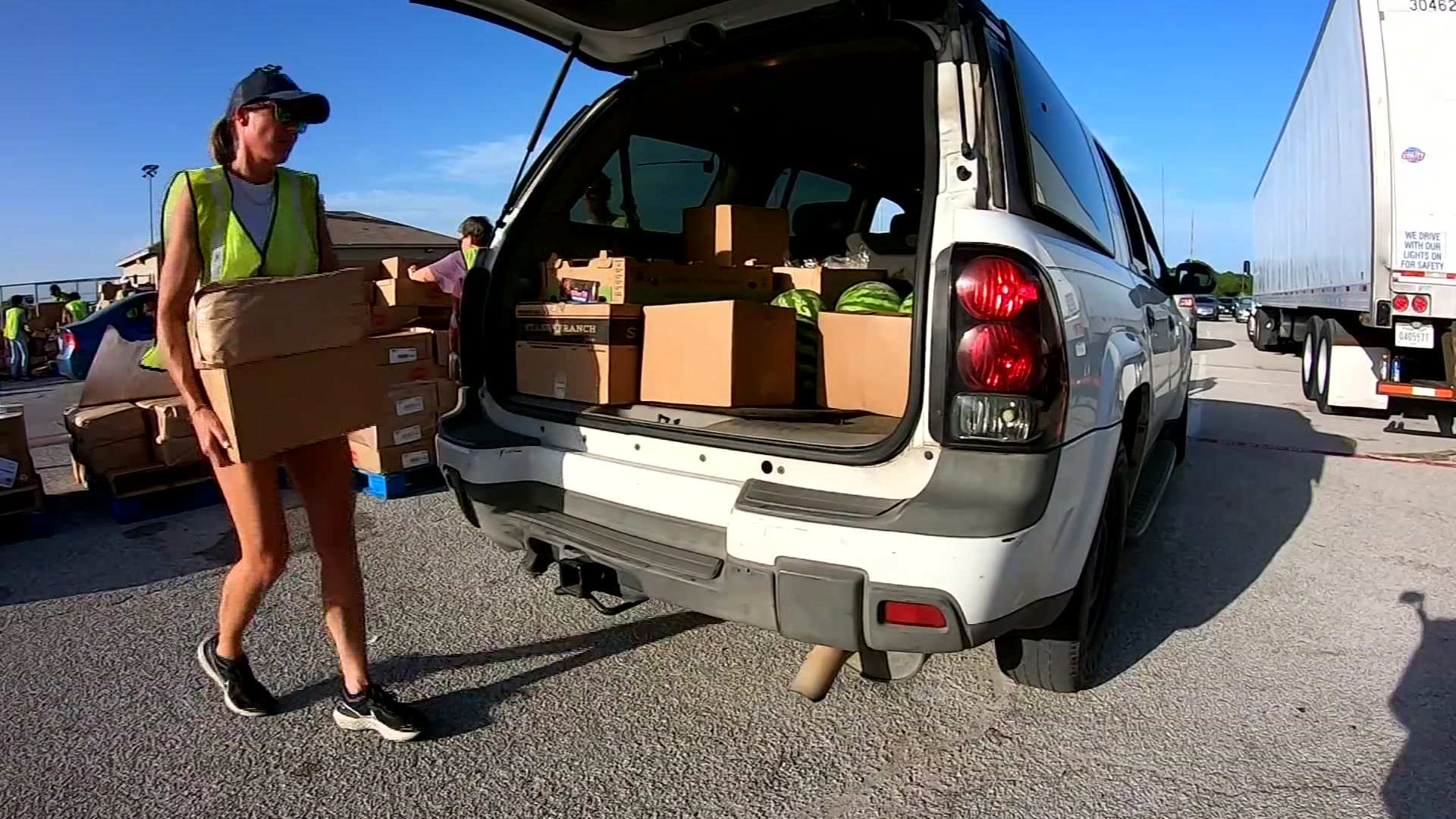The federal prison in Seagoville is reporting a drastic change in COVID-19 cases.
Until recently, the low-security prison had the largest number of cases in the country’s prison system.
The virus has proven deadly, claiming the lives of three inmates including James ‘Jimmy’ Giannetta.
The only thing Russ Giannetta has of his brother are items in two cardboard boxes he just received from prison.
“It’s a really weird feeling that this is my brothers,” he said. “It’s a bunch of socks and a couple books.”
Jimmy Giannetta was at Federal Correctional Institution Seagoville for drug trafficking.
The 65-year-old had many underlying health conditions and had been trying to get transferred to a medical facility before the outbreak.
Local
The latest news from around North Texas.
“He was HIV positive. He was borderline with diabetes,” said Giannetta.
Jimmy contracted COVID-19 in late June.

“He said somebody in here has tested positive and this place is going to explode because there’s no simple way to contain it in here,” he remembers.
Giannetta said it became difficult to receive information about his brother’s condition in prison and when he was rushed to Dallas Regional Medical Center.
His brother had a ‘do not resuscitate’ order in place and did not want to be on a ventilator, he said.
Giannetta was able to FaceTime with his brother from his hospital bed in July.
“The place was pandemonium. People running around with tanks and respirators,” he said. “[Jimmy] didn’t want to talk about anything other than where to scatter his ashes and that kind of stuff and how he screwed up his life.”
Jimmy Giannetta died on July 16, the Dallas County Medical Examiner’s office confirms.
He is one of three Seagoville inmates who have died of the virus, according to the Federal Bureau of Prisons.
However, the prison is now reporting a dramatic improvement in active COVID cases after an explosion of the virus.
Well over half, closer to 75%, of the nearly 1746 have contracted the virus, according to online statistics.
“Last week when I was looking at the numbers for the facility it seems apparent that the overwhelming majority of people who were detained there [in Seagoville] had tested positive,” said Dr. Homer Venters.
As of Friday, active COVID-19 cases are now down to 2% of the inmate population, 36 inmates.
1,313 inmates have ‘recovered,’ according to the BOP.
“People that tested positive, let’s say three, four weeks ago, may be considered recovered or not part of active cases,” said Venters.
Venters, former chief medical officer of New York City’s jail system, is also an epidemiologist who has been investigating how COVID-19 is being handled in federal prisons, including Seagoville.
He cautions against the new data.
Four staff members have coronavirus, according to the BOP.
“When you kind of wave a wand over people and say they’re recovered, my experience going into jails and prisons is many of them are not actually recovered,” he said. “Many of them have new shortness of breath, chest pain, ringing in the ears, headaches. Other very serious symptoms.”
The Federal Bureau of Prisons released this statement to NBC 5 on the current Covid-19 situation in Seagoville:
Previously, a majority of inmates at FCI Seagoville were positive for COVID-19. The number has dropped to 35 positive inmates and 1,313 recovered inmates on the BOP's Coronavirus webpage as staff have diligently and safely carried out their responsibilities in accordance with CDC guidelines. In addition to taking inmates' temperatures and assessing them for COVID-19 symptoms twice daily, the institution began mass testing at FCI Seagoville this summer to identify asymptomatic and pre-symptomatic inmates who test positive so that they could be isolated quickly. This prevented COVID-positive inmates from transmitting the virus to others. The majority of positive inmates exhibited either mild or no symptoms. Accordingly, many of them have recovered as seen in the drop in numbers.
Venters urges Seagoville prison officials to order an individual evaluation of inmates for new chronic illnesses.
“We also have to recognize that in a facility like this, we likely have hundreds of people who have new health problems that are basically chronic,” he said. “I’ve actually come across correctional officers [at other facilities] who are supposedly recovered from COVID but who can barely do their jobs because they still struggle with these same symptoms.”
Venters said inmates at higher risk for developing complications should be considered for ‘compassionate release,’ in an effort to avoid another loss of life.
“I suspect half the U.S. population probably thinks let him [Jimmy] drop dead and I get it,” said Giannetta. “But you have to see when it’s a family member, my father’s constantly asking when’s Jimmy gonna call, it’s a different thing.”
All visitations at the federal prison continues to be suspended until further notice.
*Map locations are approximate, central locations for the city and are not meant to indicate where actual infected people live.



